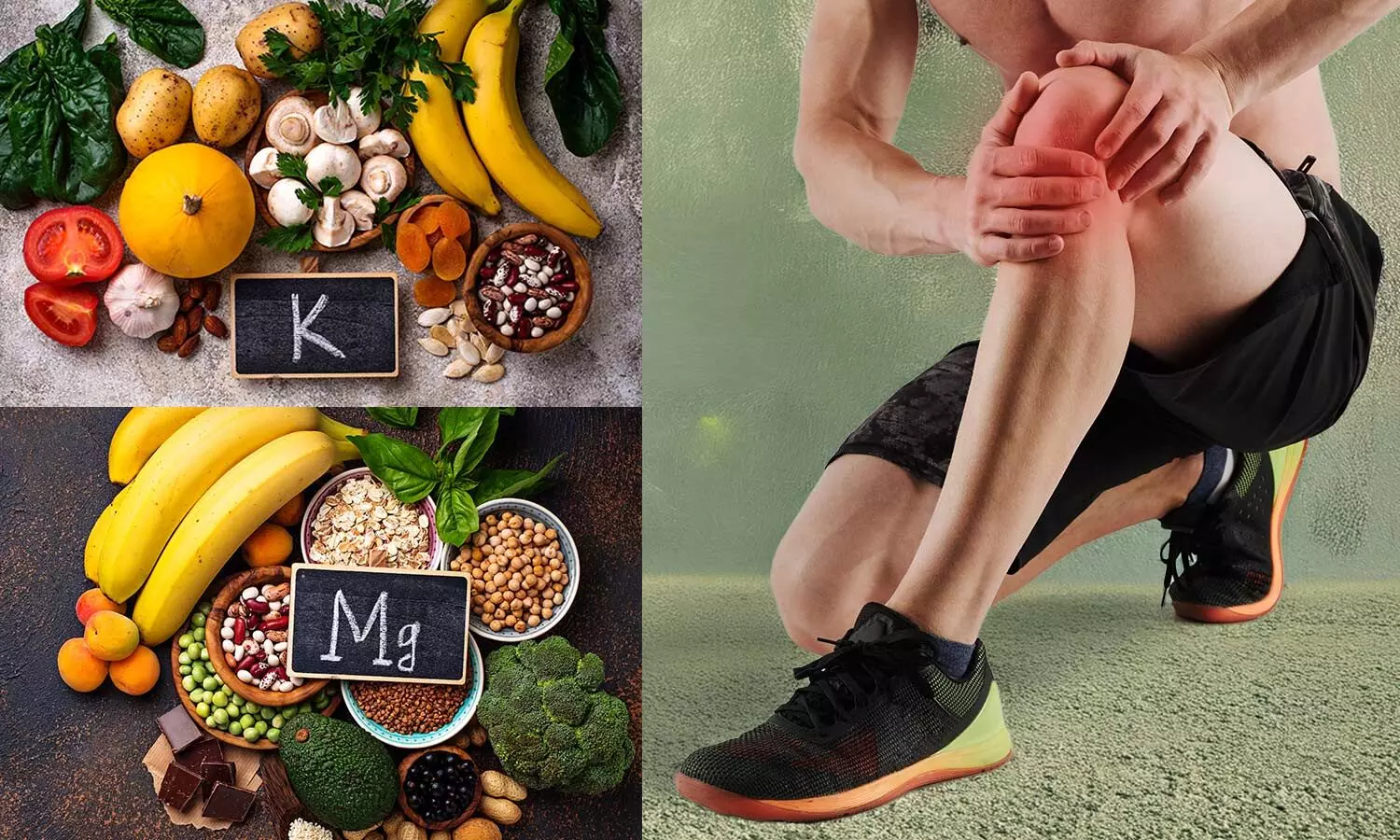Foods that help relieve sudden leg cramps and muscle strains
According to research, consuming specific nutrients (potassium, sodium, and magnesium) may aid in cramp and pull reduction.
image for illustrative purpose

Muscle pull and leg cramps are generally of short duration, typically subsiding within a few seconds to a few minutes. Dehydration, medication use, intense exercise, neuromuscular abnormalities, and medical conditions are frequently cited as potential contributors, although the precise cause is not always known. According to medical experts, specific nutrients may be effective in treating muscle pull and leg cramps. Furthermore, certain B vitamins, magnesium, and vitamin D deficiency may increase the likelihood of experiencing cramps and pull.
Here are ten foods that have the potential to alleviate muscle cramps:
1. Avocados are nutrient-dense, delectable fruits that have the potential to prevent muscle cramps. Potassium and magnesium, two minerals that function as electrolytes within the body and contribute to muscle health, are especially abundant in them. Consequently, if you frequently experience muscle pull and leg cramps, consuming an abundance of foods rich in electrolytes, such as avocados, may be beneficial.
2. Dehydration is a potential contributor to muscle cramps. Watermelon is a fruit characterised by its remarkably high water content, most recommended to cure dehydration. Indeed, watermelon comprises approximately 92% water, rendering it a highly hydrating snack option. Additionally, watermelon is an excellent source of potassium and magnesium, two minerals essential for proper muscular function.
3. Coconut water contains the essential calcium, potassium, sodium, magnesium, and phosphorus, all of which have the potential to alleviate cramping and pull. Although additional research is required, studies may suggest that maintaining hydration with electrolyte-rich coconut water could potentially mitigate the likelihood of experiencing cramping and pull, especially after exercise.
4. Sweet potatoes are considered to be among the most nutritious vegetables owing to the potent amalgamation of plant compounds, vitamins, and minerals present in both their flesh and skin. They are rich in magnesium, calcium, and potassium, all of which are essential minerals for proper muscle function. One cup of mashed sweet potato provides nearly 13% of the recommended magnesium intake and over 20% of the recommended potassium intake.
5. Greek yogurt is an exemplary dairy product that is rich in numerous electrolyte-functioning nutrients, including potassium, phosphorus, and calcium. It is an excellent source of protein, an essential amino acid for muscle growth and repair. Hence, consuming Greek yogurt subsequent to a rigorous exercise regimen may facilitate the restoration of specific nutrients that potentially avert muscle cramps caused by exercise and enhance recovery.
6. Muscle cramps and pull might be alleviated by bone broth for a variety of reasons. As a liquid, consuming it may aid in hydration, thereby potentially mitigating cramping and pull. In addition, bone broth is rich in sodium, calcium, and magnesium, all of which may aid in the prevention of sprains. Be sure to cook bone broth for an extended period of time and to incorporate an acidic ingredient, such as apple cider vinegar, into the recipe.
7. In addition to being delicious tropical fruits, papayas are notably rich in magnesium and potassium. A papaya, weighing 11 ounces, provides approximately 15% and 19%, respectively, of the recommended daily allowances for potassium and magnesium. Those who experienced cramps and pull consumed less dietary potassium than those who did not experience this symptom, according to a study of 200 women.
8. The nutrient-dense, leafy shoots of the beet plant constitute beet greens. They support muscle health and may reduce the risk of muscle cramps and leg pull; they are among the most nutrient-dense greens that one can consume. Nitrates, which are abundant in beet greens, are compounds that aid in the improvement of blood vessel function, thereby ensuring that your muscles receive adequate blood flow.
9. Typical sources of sodium and additional nutrients that may alleviate muscle cramps include fermented foods like kimchi and pickles. Pickle juice may, surprisingly, assist athletes in preventing electrically induced muscle cramps, according to some research. Individuals who frequently experience muscle cramps may benefit from consuming pickles, in addition to other fermented foods such as sauerkraut, which are mineral-rich in sodium.
10. Salmon is an exceptionally abundant source of protein, healthy anti-inflammatory fats, and additional nutrients such as potassium, magnesium, and phosphorus that may aid in the prevention of muscle cramps and leg pull. Additionally, salmon is an excellent source of iron, a mineral that is critical for the oxygenation of muscle tissue, the production of healthy blood cells, and blood flow—all of which are essential for preventing cramps and pull.
Numerous individuals endure the agonising symptoms of leg cramps and muscle pull. They may be prevented or treated with the consumption of nutrient-dense foods that are abundant in particular vitamins and minerals. A few of the foods and beverages on this list may provide natural relief for muscle cramps and leg pull that you experience frequently. Consult your medical professional regarding potential causes and treatment alternatives if your symptoms fail to improve or worsen.

